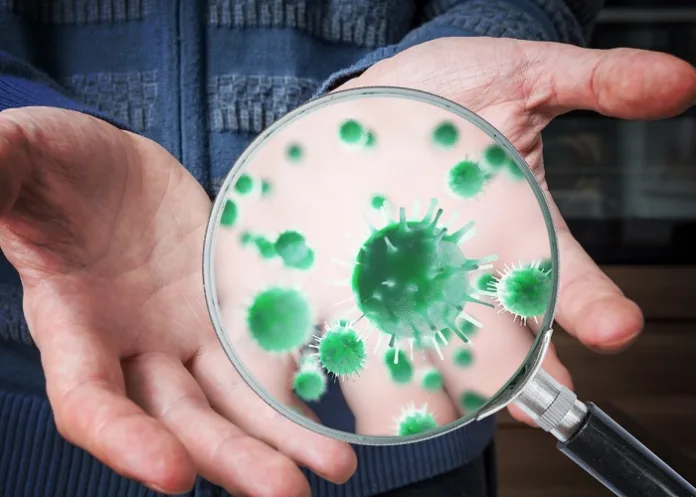Surgical infections might be caused by bacteria that already live on your skin, rather than via external contamination, suggests a study of more than 200 people who underwent spinal procedures.
Hospitals usually have strict hygiene standards to prevent such problems, but the research found 3% of people who have an operation are affected, reports New Scientist.
Instead of coming from the hospital environment, many of these post-surgery infections could stem from a person’s skin microbiome, said Dustin Long at the University of Washington, who with his colleagues, collected skin swabs before and after 204 people underwent different types of spinal surgery.
Fourteen of the participants went on to develop wound infections. After analysing the microbes responsible, the team found that 12 of the cases involved bacteria that were already part of their skin microbiomes before surgery.
“Virtually all of the SSIs (surgical site infections) we encountered originated from the patient’s own microbiome, rather than pathogens that were introduced from the hospital or the operating room,” said team member Stephen Salipante, also at the University of Washington.
The researchers, whose findings were published in Science Translational Medicine, expect similar results for any surgery that involves cutting the skin, said Long.
They also found that 59% of the infection-causing organisms uncovered were resistant to pre-surgery antibiotics given intravenously to all participants, in an effort to prevent such infections.
“By characterising the antibiotic resistance traits in the microbiome before surgery, antibiotic therapy could be tailored to each individual patient to make it as effective as possible,” Salipante added.
Future research could also look into the most effective methods for sterilising patients’ skin before an operation, the team said.
Despite the findings, a clean hospital environment and sterile surgical instruments are still essential, Long added.
“Much of the information on the importance of bacterial skin flora in surgical site infection, and particularly surgery involving implantable material, has been known for several decades,” said Roger Bayston at the University of Nottingham in the UK.
Study details
Contribution of the patient microbiome to surgical site infection and antibiotic prophylaxis failure in spine surgery
Dustin Long, Chloe Bryson-Cahn, Stephen Salipante et al.
Published in Science Translational Medicine on 10 April 2024.
Abstract
Despite modern antiseptic techniques, surgical site infection (SSI) remains a leading complication of surgery. However, the origins of SSI and the high rates of antimicrobial resistance observed in these infections are poorly understood. Using instrumented spine surgery as a model of clean (class I) skin incision, we prospectively sampled preoperative microbiomes and postoperative SSI isolates in a cohort of 204 patients. Combining multiple forms of genomic analysis, we correlated the identity, anatomic distribution, and antimicrobial resistance profiles of SSI pathogens with those of preoperative strains obtained from the patient skin microbiome. We found that 86% of SSIs, comprising a broad range of bacterial species, originated endogenously from preoperative strains, with no evidence of common source infection among a superset of 1610 patients. Most SSI isolates (59%) were resistant to the prophylactic antibiotic administered during surgery, and their resistance phenotypes correlated with the patient’s preoperative resistome (P = 0.0002). These findings indicate the need for SSI prevention strategies tailored to the preoperative microbiome and resistome present in individual patients.
New Scientist article – Post-surgery infections may mainly be caused by skin bacteria (Open access)
See more from MedicalBrief archives:
Antibiotic usage link to surgery infection in low-income countries
When surgical infection control practices work best
Dressing uses electric field to disrupt infections

